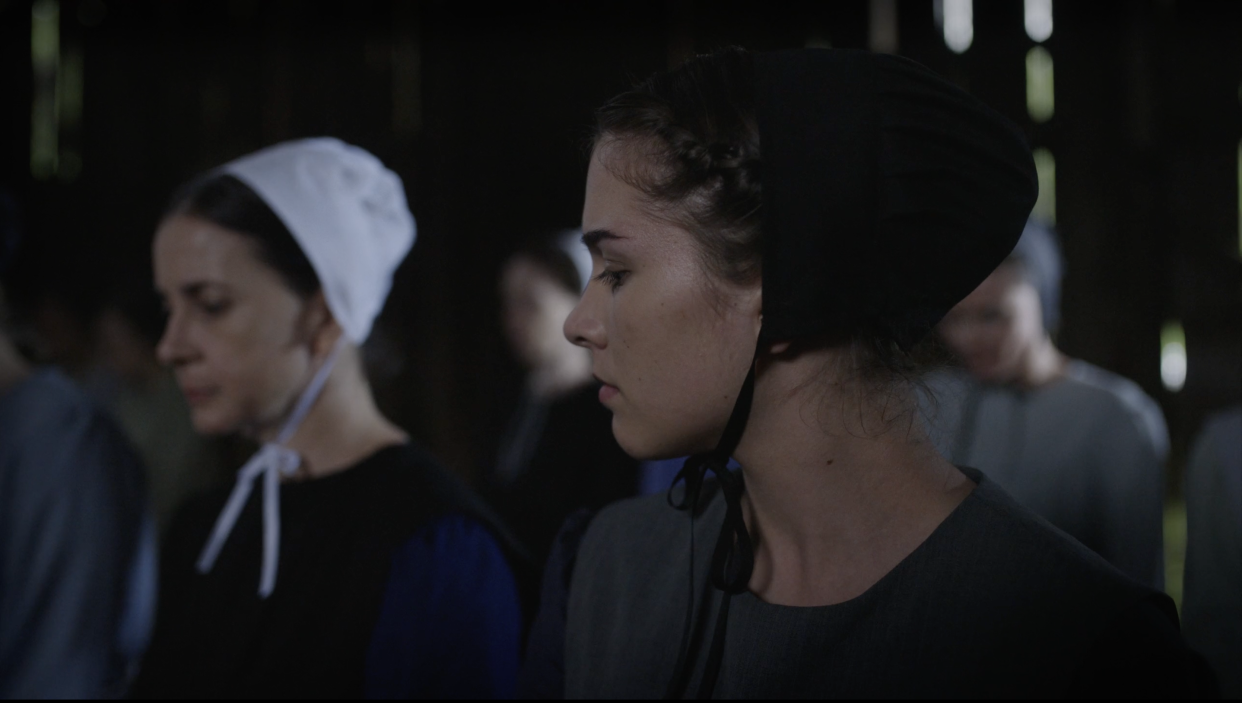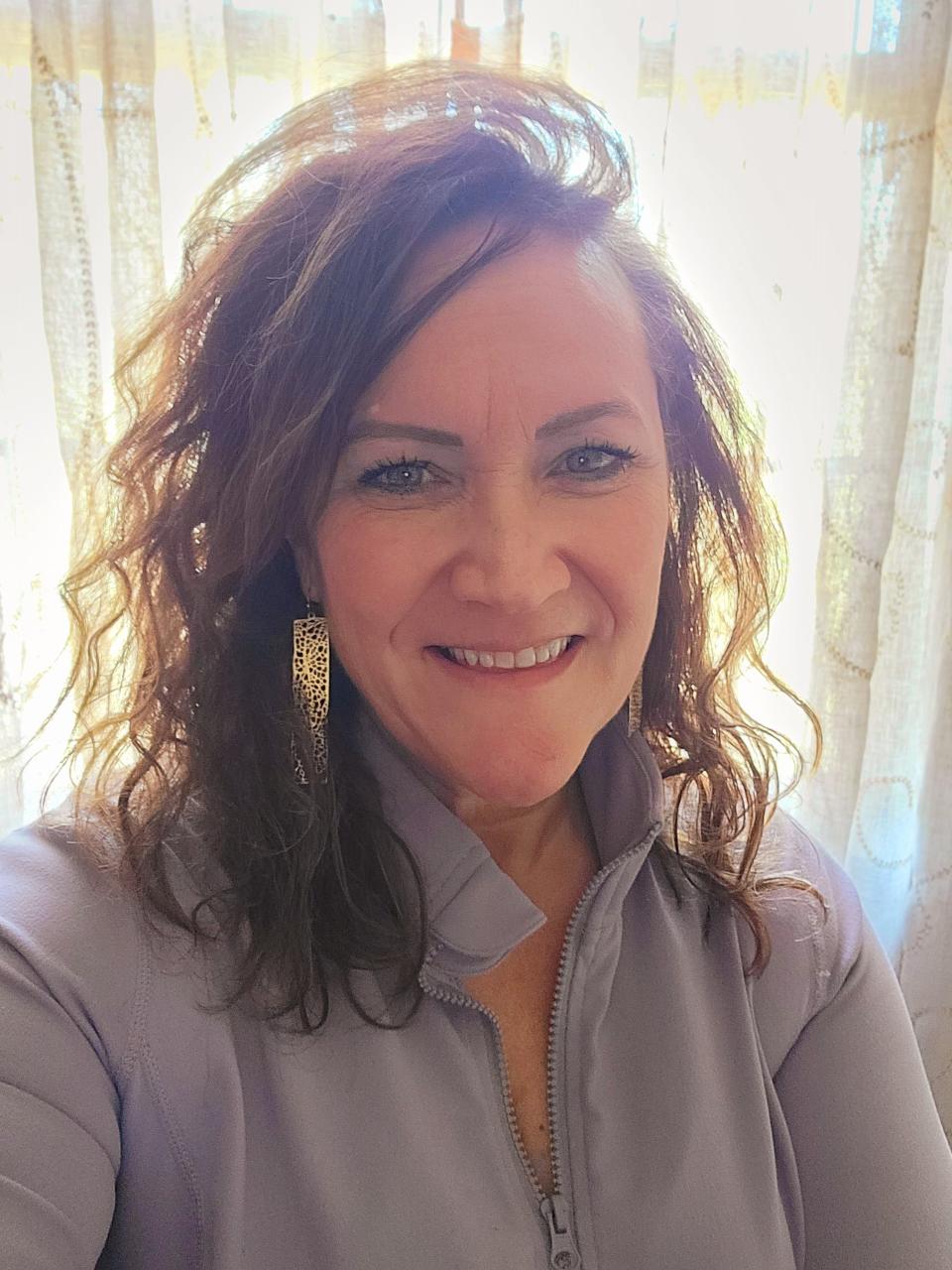With Lifetime movie debut, abuse survivor pushes for awareness in Mennonite, Amish communities

Joanna Yoder started advocating for sexual abuse survivors in “small ways,” she said, and took the next step by speaking with the Pittsburgh Post-Gazette for a Pulitzer Prize-finalist series.
Now, Yoder, an abuse survivor who grew up conservative Mennonite, is the consultant on a new Lifetime film loosely based on her story.
The Lifetime film, titled “An Amish Sin,” was another milestone in Yoder’s journey to raise awareness about abuse within Plain communities, a label that includes conservative Mennonites and Amish communities.
“I know how difficult it is to be a survivor trying to blaze my own trail and I just don’t want someone else to ever have to do this alone," said Yoder, who lives in Winchester, Tennessee. "I never dreamed it would grow into something so quickly."
Yoder spoke out about abuse by members of her extended family in smaller forums and then through a Post-Gazette article that was part of a 2019 series on abuse in the Plain communities.
The Post-Gazette story followed Yoder’s travels to Kentucky and Tennessee to sites where she suffered abuse, and to speak with law enforcement and state lawmakers.
Yoder spoke with state Rep. Mike Sparks, R-Smyrna, about a bill extending the statute of limitations on child sexual abuse crimes. When the bill passed, Yoder attended the bill signing ceremony.
Related:Bill extending statute of limitations on child sexual abuse crimes likely to become law
Yoder lived in Pennsylvania at the time and later moved to Tennessee early this year. After the Post-Gazette story, she started a nonprofit for abuse survivors called Never Stand Alone.
With the release of Lifetime’s film, Yoder spoke with The Tennessean about her journey.
This interview has been edited for length and clarity.
The Tennessean: Before the Post-Gazette story, what did it mean to speak out about your abuse?
Joanna Yoder: It’s so complicated and painful trying to figure out how to tell your speaker truth and what happened and still honor and respect the people that you love and your family. Navigating those relationships and wanting so much to maintain a relationship with them came at a great cost.
I didn’t go after journalists, media, I didn’t chase down Lifetime. They came knocking on my door and I kept walking through that door and that’s what I continue to do to this day.

After the Post-Gazette story, how did your nonprofit emerge?
In fall 2019, I started a Facebook page with the mission to support survivors in the courtroom. Long story short, we ended up creating a nonprofit and ended up traveling to many different states to support survivors.
For example, I got a call one day from a friend who said, ‘There’s a woman in Wisconsin who is going to court and facing her perpetrator. She’s looking for support.’ And within 24 hours, four of us got into a car and drove 17 hours from Pennsylvania to Wisconsin to be with her in court that day.
A lot of these women have no resources and no idea how to report. So, we guide them through that process and act as a liaison between them, law enforcement, and the judicial system.
Being a consultant on the Lifetime film was a new kind of advocacy for you. What was that experience like?
From the filmmakers, I felt a genuine concern and care for me, and what I had been through. At first, I told them I didn’t want my name connected to the film because I was so cautious. But a month before it was finalized, I reached out to them and said, ‘you can go ahead and connect my name to it.’ It was me taking another step of letting go of the past and not letting fear control me.
Most of the backlash I have gotten are from Amish and Mennonites who have left the community who are offended that this film was done in Amish. The filmmakers knew I was Mennonite, but they filmed it like I was Amish.
What do you make of that criticism?
Working on the film, I was thinking more about the message. In retrospect, I do think that moving forward it is important that people start understanding that there is a difference between Mennonites and Amish.
My story isn’t less than because I wasn’t Amish. My story impacts me just as much since I was Mennonite as if I was Amish.
Liam Adams covers religion for The Tennessean. Reach him at ladams@tennessean.com or on Twitter @liamsadams.
This article originally appeared on Nashville Tennessean: Advocate Joanna Yoder on abuse, Lifetime movie 'An Amish Sin'

